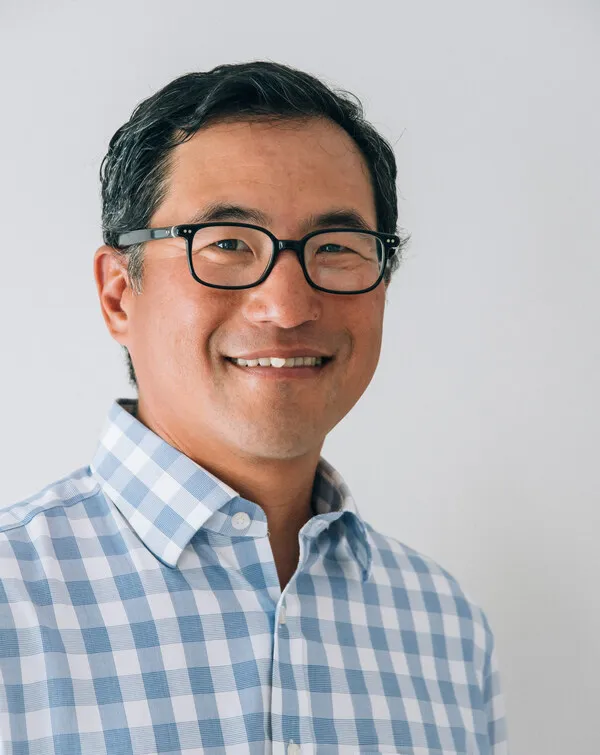
2024 SHN Virtual Colloquium:
Artificial Intelligence: Understanding & Harnessing the Potential

As we stand on the cusp of a technological revolution, community colleges are uniquely positioned to lead the charge in preparing students for an AI-driven future. This program is not just an exploration; it's a call to action for community college leaders to grasp the profound impact AI is already having and will continue to have on education.
Context of AI Disrupting Higher Education:
In recent years, AI has emerged as a disruptive force across various industries, and higher education is no exception. The integration of AI technologies in classrooms, learning platforms, and administrative processes is reshaping the educational landscape. Adaptive learning systems, personalized education paths, and data-driven insights are becoming integral components of modern education.
Community colleges, with their commitment to accessibility and inclusivity, are at the forefront of adapting to these changes. Understanding the implications of AI in higher education is crucial for community college leaders. From optimizing administrative tasks to enhancing teaching methodologies, AI is a powerful ally in creating a more efficient, personalized, and effective learning environment.
Moreover, the skills required in the job market are evolving, with AI playing a central role. Community colleges play a pivotal role in equipping students with the skills needed to thrive in an AI-driven workforce. Thus, grasping the potential of AI is not just a technological imperative but a strategic move to ensure the continued relevance and success of community colleges.
Read more
Why Community Colleges Must Understand the Impact:
- Preserving Accessibility and Equity: Community colleges have long been champions of accessibility and equity in education. Understanding AI ensures that these principles are maintained as technology evolves, preventing the creation of educational divides.
- Enhancing Student Outcomes: Harnessing AI's potential allows community colleges to personalize learning experiences, identify at-risk students early on, and implement data-driven strategies to enhance student success and retention.
- Adapting to Workforce Demands: Community colleges, as key contributors to workforce development, must align their programs with the evolving needs of industries. Understanding AI ensures that the curriculum is relevant, preparing students for AI-integrated workplaces.
Learning Outcomes - Upon Colloquium's end, participants will be able to:
- Apply: Participants will apply their understanding of AI to develop strategies for integrating AI technologies in educational settings, promoting personalized learning experiences and administrative efficiency.
- Analyze: Attendees will analyze the impact of AI on accessibility, equity, and student outcomes in higher education, fostering a deeper understanding of the nuanced implications.
- Create: Community college leaders will be empowered to create action plans for adapting curriculum and programs to meet the changing demands of the workforce influenced by AI, ensuring alignment with industry needs.
| 10:30 - 11:45 a.m. | Demystifying artificial intelligence: What is it, and why are we all talking about it? Luyen Chou Passcode: SHN2024 ZOOM LINK |
|---|---|
| 11:45 a.m. - 2:00 p.m. | Break |
| 2:00 - 3:15 p.m. | What does AI mean for the future of labor, work, and more importantly, education? Luyen Chou Passcode: SHN2024 ZOOM LINK |
| SHARE YOUR THOUGHTS WHEN YOU HAVE A MOMENT! | |
Keynotes

Demystifying artificial intelligence: What is it, and why are we all talking about it?Luyen Chou 10:30 - 11:45 a.m. EST

What does AI mean for the future of labor, work, and more importantly, education?Luyen Chou2:00 - 3:15 p.m. EST
Demystifying artificial intelligence: What is it, and why are we all talking about it?
Luyen Chou | 10:30 - 11:45 a.m. EST

The concept of artificial intelligence actually goes back at least a thousand years. It's been a staple of literature and popular culture (from Frankenstein, to 2001: A Space Odyssey, to The Terminator, and The Matrix). But it became a computer science problem in the 1950s, thanks to Alan Turing (The Imitation Game, the Turing Test). That said, why has it captivated us all this past year? What is AI, and what are the trends that have led to the breakthroughs in recent months?
Session Passcode: SHN2024
What does AI mean for the future of labor, work, and more importantly, education?
Luyen Chou | 2:00 - 3:15 p.m. EST

What industries and jobs will be most affected by AI in the short to medium term? And what can you do about it? What does this all mean for education?
Session Passcode: SHN2024
Luyen Chou
Global education executive, entrepreneur, technology innovator

Luyen Chou is a long-time leader in the field of education technology. He is a frequent speaker on topics including learning science, digital learning, and the impact of artificial intelligence on education. Luyen also serves in a variety of advisory roles, including as an advisor for Bain Capital Double Impact. He serves on the boards of Meteor Education, the leading provider of K-12 classroom learning environments in the United States, Pi-top, a classroom robotics company, New Classrooms, a personalized math curriculum company. He also serves as an external advisor on AI for Arizona State University.
Luyen has a long history as a corporate executive in the education sector. He was Chief Learning Officer at 2U Inc., and Chief Product Officer at Trilogy Education. Prior to joining Trilogy, Luyen served as Chief Product Strategy Officer at Pearson Education following its acquisition of Schoolnet, where he served as Chief Product Officer. A veteran of the industry, Luyen founded his first edtech company, Learntech, in 1992, where he served as CEO and President.
Luyen started his career as a high school history teacher and an early pioneer in classroom technology. He is a founder of several nonprofit schools in the US, including The School at Columbia University and Brooklyn Prospect Charter Schools. He has also served as board advisor for Altschool, the Carnegie Corporation's OpenSciEd initiative, and as a member of the Open edX Technical Oversight Committee.Luyen holds a B.A. in Philosophy from Harvard College and an M.A. in Educational Leadership from Columbia University Teachers College.
Reading Resources
- The Definitive Guide to AI in Higher Education
- The AI-Ready Workforce
- Is Philosophy the New Coding In a Post-GPT World?
- OpenAI and UPenn on GPT 4 capabilities, in particular performance against academic exams, impact on labor
- Nature research article about AI (GPT) abilities compared to college students
- Columbia Business School research study on AI workplace collaboration
- World Economic Forum "2023 Future of Jobs" report
- Political bias in AI systems
- Accenture on the future of work in an AI economy
